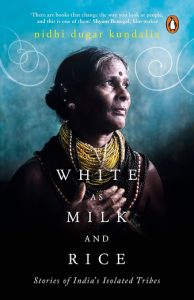Mahfuzur Rahman
When I took up journalism as my career after my university over two decades back, I used to hear one of my former senior colleagues to say, ‘Journalism is a job of mediocre, but it requires devotion’. One may agree with him. But, I partly disagree. There was a time when content was the only important part of journalism, whatever it was, which used to be produced with more time than a good poem required. Now speed has been the central part of journalism that wants journalists to be multitaskers. Things are changing fast in the media landscape and we are awaiting more exciting changes in the near future. Talents and efficiency now matter more in journalism than anytime before.There is a notion that readers cannot switch over to any newspaper overnight because they get conditioned with the ones they had long been subscribing out of love or trust. An optical illusion is there. But the technology is also correcting this tricky part of readership. A marked change is already there. The younger audience of journalism hardly gets conditioned, as options are there in plenty. But, with the stormy change there came some wastes and garbage creating confusion and triggering debates in the discourse of journalism. We also know after the storm there comes a clam. And the stormy things in the media industry are rapidly taking a solid shape.
As the new media are evolving fast, journalists need to diversify their news stories with due depth and dimension, but with super short stories. In journalism, there are various types of writing. The journalistic writing primarily falls into two categories – news and views. And news, as we know, are of two types—hard and soft (news features). The areas of journalism to express one’s views and opinion are editorials, post editorials and the articles published in Op-Ed pages. What does it mean by the Op-Ed? It is actually the articles which are published in the page opposite to the editorial one.
Editorial page is the designated space for expressing views of the media house either by the editor himself or his representatives working in the editorial team, but the responsibility for this piece of writing always goes to the editor, no matter who writes it. Editorials are usually written on current important issues with making suggestions what the authorities – the government and policymakers — need to do to deal with the situation.
When the situation is extremely serious, the editor himself or herself comes up with his or her own piece of opinion on the front page. But, it is done once in a while because such frequent practices are not treated well by readers. This editorial part is, in fact, the secondary section of journalism though it requires the highest level of skill and wisdom for one to do the job. At the end of the day it is the news contents that drive journalism.
News writing is a different type of practice which is academically called ‘Inverted Pyramid’ structure where journalists present a particular incident just being presenter of it not the part of it. As a reporter, one’s duty is to write how it happened or who said what, substantiating simultaneously. In news writing, journalists have to be religious as there is no room for them to be part of an event or incident they are reporting. There are many subtle tactics for a good news storytelling. I came across many serious newspaper readers who are aware about story writing techniques as they read stories every day and they do it seriously.
When we first joined the first reporting class at Dhaka University’s Journalism Department, our teacher Professor Nuruddin wanted to know from all us why we had got admitted to the Journalism Department. When my turn came to reply, I came up with a stupid answer saying, “I’ve a great inclination to be a writer.” Professor Nuruddin then promptly exhorted us saying, “You know, journalism is not literature and journalists are not litterateurs either.” Then I got my point. After spending so many years in the newsroom, now I am deeply trying to understand what journalism actually is.
A few days back, I had been at the DBH Headquarters in Dhaka city’s Gulshan area to have some personal works done. While dealing with my case, the curious DBH senior official, who looked to be knowledgeable, wanted to know about the future of journalism and how things are presently going on in the media industry in Bangladesh. As usual, I spoke highly about Bangladesh journalism and its future as well. However, he looked worried about the integrity of journalists in Bangladesh. At one point of our discussions, I told him that I also face a volley of questions when I visit my village home as people ventilate their angers against journalists. I think there is nothing to be upset when people strongly criticise media professionals because they do it out of their greater expectations. More importantly, journalists are not above criticisms. When you criticise others, you are also supposed to be crticised.
Amid the changing situation, the audience of journalism need to be reassured that journalism is impartial though individuals cannot be neutral. If this message could be taken as a virtue, it is possible to make the academically emphasised objective journalism practically possible, no matter which medium carries the message.
A few months back, a UNB team, including me, visited a media house to meet its editor and exchange views over our news service. At one point of our discussions, the learned editor advised us not to editorialise our news stories. “Keep your news items simple, compact, and communicable without using adjectives. You know, adjectives actually harm the quality of news items.” There is no reason to disagree with the editor as there is a tendency among us to randomly use adjectives in news stories in both English and Bangla journalism here. It happens for two reasons – lack of academic knowledge and boasting of ‘knowledge’. Such exercises only confuse the readers.
We can reasonably refer it to the BBC for its highly communicable language and also for its objectivity to large extent. Despite the inevitable wave of changes in the form, genre and format of news story writing, we cannot forget some universal basics of journalism– the writing style, the ethics and social commitment. Journalists need to reach out to people and communities through greater feedback, personification and customisation. There should be comprehensive research on their liking, disliking and consumption behaviour.
To engag




